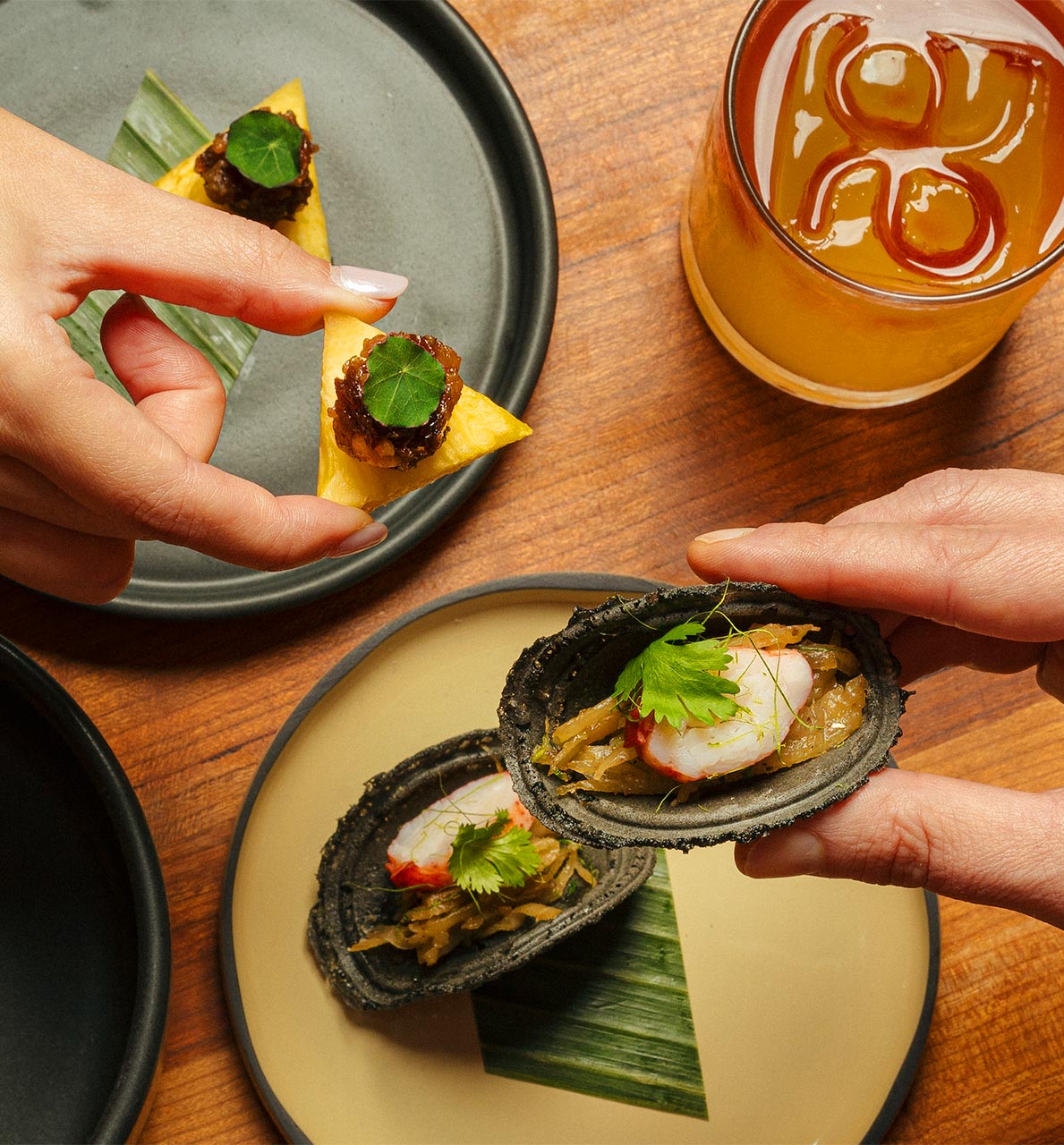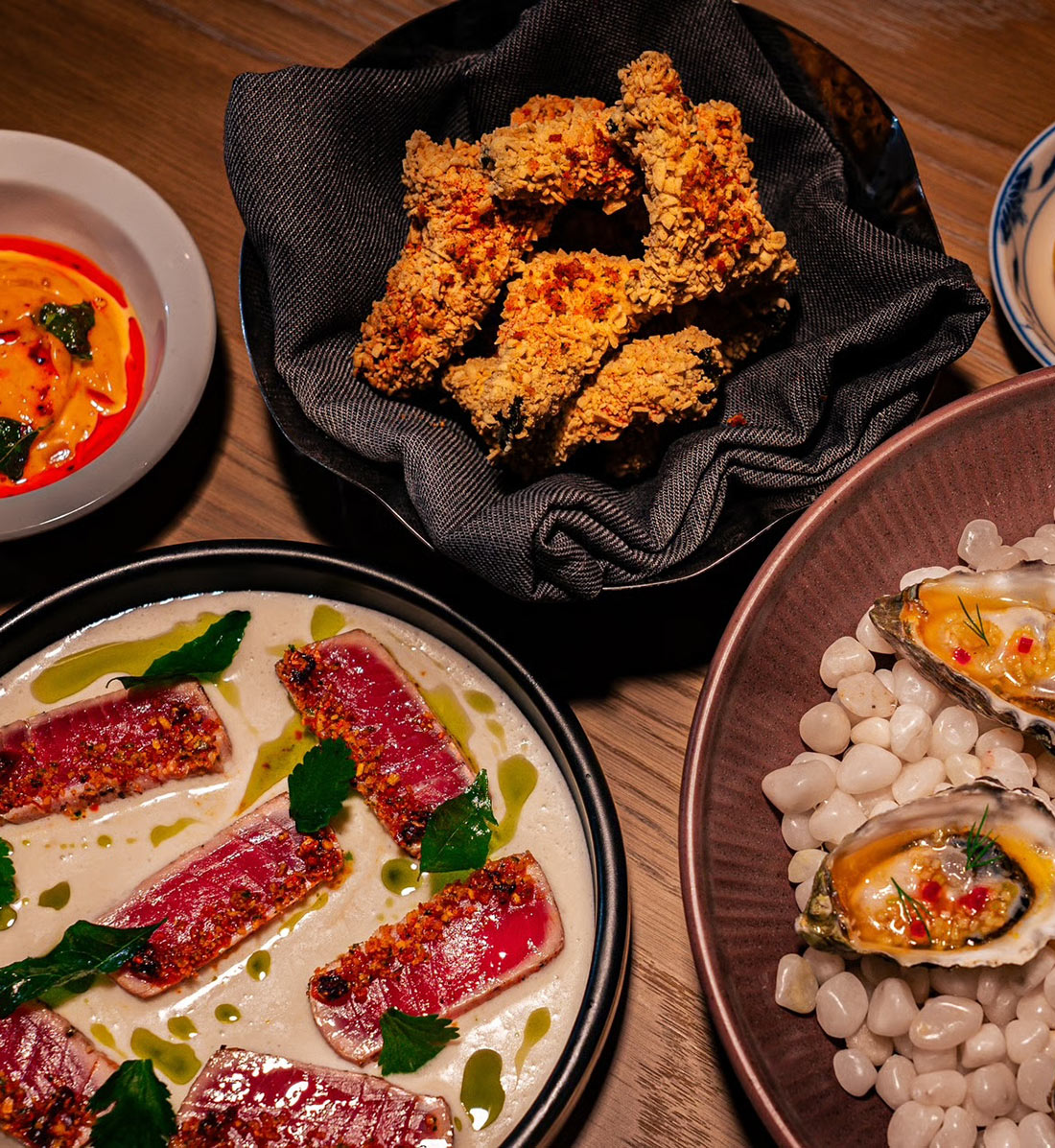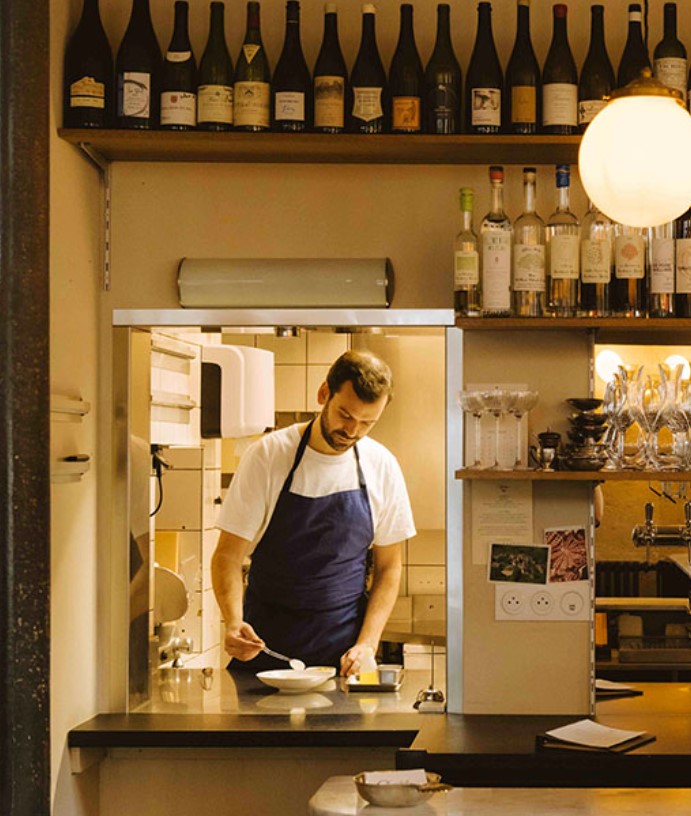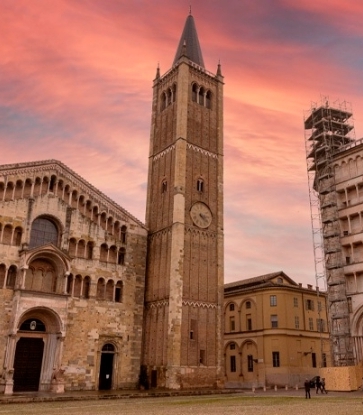California calls out to us all. Even before Americans decided westward expansion was a divine right, the beauty and abundance of this broad swath of seaside land has pulled people toward it. They came in droves, and helped create an intermingling of opposing topographies — the meetings of civilization and wilderness, of city and beach, of desert and oasis — that became, arguably, the state’s most notable feature.
It’s no surprise, then, that California’s hotels reflect this variety of landscape and the lifestyles that emerged from it. More than any other state in the union, California is where you’ll find the most hotels in buildings that demonstrate the most remarkable range of history and design — particularly those structures erected in the first half of the twentieth century, when the population was exploding and California was becoming what it is today.
These classics have been kept alive for you to enjoy. Among them you’ll notice a heaping helping of Revivalism (a major movement of the early 1900s), but also a few trends more modest in nature. There may be other areas of the country with a similar diversity of architecture, but they haven’t made as many of those places into hotels as California has. Come and behold.

The Paramour Estate — LA
This 1920s estate in LA’s hip Silver Lake began its life as a Mediterranean Revival mansion for a now-forgotten silent-film star. Later it was a girls’ school, and still later a convent for Franciscan nuns. And when interior designer Dana Hollister bought it, it became something arguably more unique: part film set, part event venue, part dream house for Hollister herself, and — most relevant for our purposes — home to nine of the most unforgettably stylish rooms, suites, and cottages in LA.
Palihouse Santa Monica — LA
For LA’s version of a stylish, low-key beach town, Santa Monica is rather short on stylish, low-key hotels. Enter the Palihouse Santa Monica. It’s not as conspicuously glam as some of the competition, and, tucked away on a residential street a few blocks from the beach, it’s certainly not as much of a scene; it’s just a perfectly tasteful, highly livable hotel, a historic 1927 Mediterranean Revival masterpiece that’s been given a fresh coat of paint and a light, contemporary makeover by the ever-on-point Pali hotel group.
Hotel Figueroa — LA
The hotel originally opened in 1926 as the first hotel funded and founded by women, and was later in life a Moroccan-themed events space. After a massive renovation, it’s back to its original Spanish Colonial glory. The rooms are equal parts Twenties throwback and contemporary luxury boutique style, all of them decorated with original works by local artists, most of them women, in keeping with the hotel’s female-dominated art collection, which includes a mural by Bella Gomez.
Chateau Marmont — LA
Opened in 1929, first as apartments, and then almost immediately converted into a hotel, Chateau Marmont was built to mimic the Chateau D’Amboise, a castle in France’s Loire Valley. Mission accomplished. Scattered throughout the building are reminders of the French late Gothic Flamboyant style, including fluted pillars, vaulted ceilings, and the perfect amount of heavy, dark wood. The drama of the building more than matches the drama that has taken place within its walls.
Downtown L.A. Proper Hotel — LA
In recent years L.A.’s once-overlooked downtown district has come roaring back, and its renaissance continues with the advent of the Proper Hotel Downtown L.A., a 148-room luxury boutique hotel by the team that includes star designer Kelly Wearstler among its creative minds. Like the original Proper Hotel in San Francisco, it begins with the rehabilitation of a classic building, in this case a 1926 Renaissance Revival building at the corner of 11th and Broadway.
The Prospect Hollywood — LA
The idea of Hollywood may be synonymous with glamour, but nearly a hundred years after the so-called Golden Age, the actual place is a bit more complicated. The Prospect Hollywood, however, is a return to form: a 1939 Hollywood Regency building, rescued from an advanced state of disrepair by designer Martyn Lawrence Bullard and transformed into what is, beneath its retro styling and vintage furniture, a thoroughly contemporary boutique hotel.
Ace Hotel Downtown L.A. — LA
Within living memory the United Artists film studio was practically synonymous with Hollywood big business, but just under a century ago it was born as the indie-est of ventures, as Mary Pickford, Charlie Chaplin, Douglas Fairbanks and D.W. Griffith joined forces to take on the established studios. Their home, the United Artists building, a 1920s Spanish Gothic Revival tower and theater, is now home to the downtown Los Angeles installment of the Ace Hotel.
Palihotel Westwood Village — LA
Westwood Village is in some ways a classic university town, home to the community around UCLA. That’s the central concept of Palihotel Westwood Village, a boutique hotel that’s got more in common with a particularly stylish university-town boarding house than with the opulent Hollywood luxury hotels that you might associate with Los Angeles. With particular emphasis on the “stylish” part. This one blends Parisian romance with mid-century modernism, and the 1939 building— Westwood Village’s first hotel—lends it an air of throwback glamour.
Casa del Mar — LA
Casa del Mar shares something more than ownership with its sister hotel, the neighboring Shutters on the Beach — as surprising as it may sound, they’re the only two hotels in the Los Angeles area that open directly onto the beach. But while Shutters is clean-lined and contemporary, Casa del Mar is a period piece, an authentic 1920s Italianate palace that’s played host to Hollywood royalty for as long as there’s been such a thing.
The Charlie — LA
Back when Charlie Chaplin owned this jumble of English Tudor bungalows, they fit right in to the pastoral landscape. Chaplin left LA over sixty years ago, of course, and it’s a minor miracle that these houses still stand — but thanks to an enterprising hotelier, they do, in the form of the Charlie. The cottages, though restored and refurbished, remain true to their original English countryside style. And the Anglo vibe doesn’t stop there; the buildings are surrounded by lush English garden landscaping.
Colony Palms Hotel — Palm Springs
It’s been a journey for the Spanish Colonial gem that is the Colony Palms Hotel. Founded in 1936 by the (alleged) mobster Al Wertheimer, it became a favorite of the Hollywood in-crowd before they eventually decamped for more distant destinations. But now, a couple of name changes later, the refurbished and redesigned Colony Palms is once again a luxe and stylish destination, one that consciously recalls the glamour of the golden age of Hollywood — and Palm Springs — even as it attracts a new generation of boutique-hotel travelers.
Korakia Pensione — Palm Springs
There’s more to Palm Springs than Fifties and Sixties modernism. Here at the edge of town, at the foot of the San Jacinto mountains, Korakia is a highly eclectic blend, with nary a kidney-shaped pool to be found. The original 1924 Moroccan-style villa, the home of a Scottish painter, was given a Greek makeover sometime in the 90s, with the two houses next door, a Mediterranean villa and a Spanish-style adobe house, added soon after.
Venice V Hotel — Venice Beach
The landmarked Waldorf Building is steeped in a century of SoCal history; former residents include Charlie Chaplin and the legendary Z-Boys skateboard team. Today it’s been put to new use as Venice V Hotel, a boutique-style property that opens directly onto the famous boardwalk. It feels effortlessly modern, despite retaining many of the building’s original period details, like exposed steel beams, a grand staircase, a restored elevator filled with brass, bronze, and mahogany, and, a favorite feature of A-list guests: the penthouse bungalows.
Granada Hotel & Bistro — San Luis Obispo
This nearly century-old brick structure is an authentic part of San Luis Obispo history. It was built in 1922 to house vaudeville performers from the Elmo Theatre, located right next door (it was probably also a brothel). Nowadays, of course, the Granada is a classic luxury boutique, after a renovation that’s left it looking closer than ever to its Twenties roots, and at the same time closer than ever to the well-aged industrial-chic style that goes down so well with a contemporary audience.
Calistoga Motor Lodge & Spa — Calistoga
California’s Napa Valley hasn’t exactly had trouble attracting travelers, thanks to its phenomenal food and wine scene and its incredibly pleasant climate and landscape. It’s been a touch late, however, to embrace the boutique motel trend, tending rather toward ultra-luxe wineries and resorts. With the Calistoga Motor Lodge and Spa, however, that’s all changed; the old Sunburst motor lodge, built in the 1940s, has been reimagined in a retro-influenced contemporary style that celebrates westbound road trips from the 50s, 60s, and 70s.
Graduate Berkeley — Berkeley
In hospitality, concept is only part of the package—the delight is often in the details, and in the execution, and it’s there that the Graduate hotels distinguish themselves. This one, a block from the University of California’s Berkeley campus, has plenty of fun with its concept, though; the fictional archaeologist Indiana Jones was a professor as well, and the Graduate Berkeley imagines what he might have done with a 1928-vintage, 144-room hotel designed by W.H. Weeks in Spanish Colonial style.
San Francisco Proper Hotel - San Francisco
Here, in what’s often described as America’s most European city, designer Kelly Wearstler has drawn inspiration from a number of European design movements, combining the expected Victorian and Art Deco currents with everything from Cubism to Bauhaus and beyond, paying special attention to the graphic arts, with bold patterns and vibrant illustrations adorning the walls. She’s done all this within a landmarked 1904 flatiron-style building that’s one of the most striking examples of the form.
The Marker — San Francisco
The Marker is fun, funky, colorful, comfortable, and set within walking distance of most of what’s worth seeing in downtown San Francisco. It’s set on Geary Street, just two blocks from Union Square, and not much farther from the Financial District. And while from the outside it’s an attractive enough, if relatively unassuming, Victorian-style building built in 1910, what’s inside is pure fantasy, like a particularly colorful dream of Belle Époque Paris assembled with the keen eye of a contemporary designer.
Subscribe to our newsletter to stay on top of the MICHELIN Guide's best restaurants and hotels, plus recipes, travel stories, and more.
Inn at the Presidio — San Francisco
The Presidio is a vast expanse of wooded hills and wild coastline at the foot of the Golden Gate Bridge, with twenty-four miles of scenic hiking and biking trails criss-crossing every which way. And at the heart of it all is the Inn at the Presidio, an elegant 1903 Georgian Revival building turned into an intimate new hotel. The renovation was well-conceived, with comfortable contemporary furnishings offsetting the historic architecture of this one-time U.S. Army building.
Ojai Valley Inn — Ojai
Don’t let the word ‘inn’ fool you—the Ojai Valley Inn isn’t some rustic little bed and breakfast, but a secluded and spectacular resort, a 1920s Spanish Colonial revival and Mission-style compound sprawling across several hundred acres of a wooded mountain valley. It’s long been a favorite getaway for refugees from the bright lights of Hollywood, as well as anyone who appreciates the laid-back charm of the Santa Barbara area.Hero image: The Prospect Hollywood. Photo by Jaime Kowal Photography



















